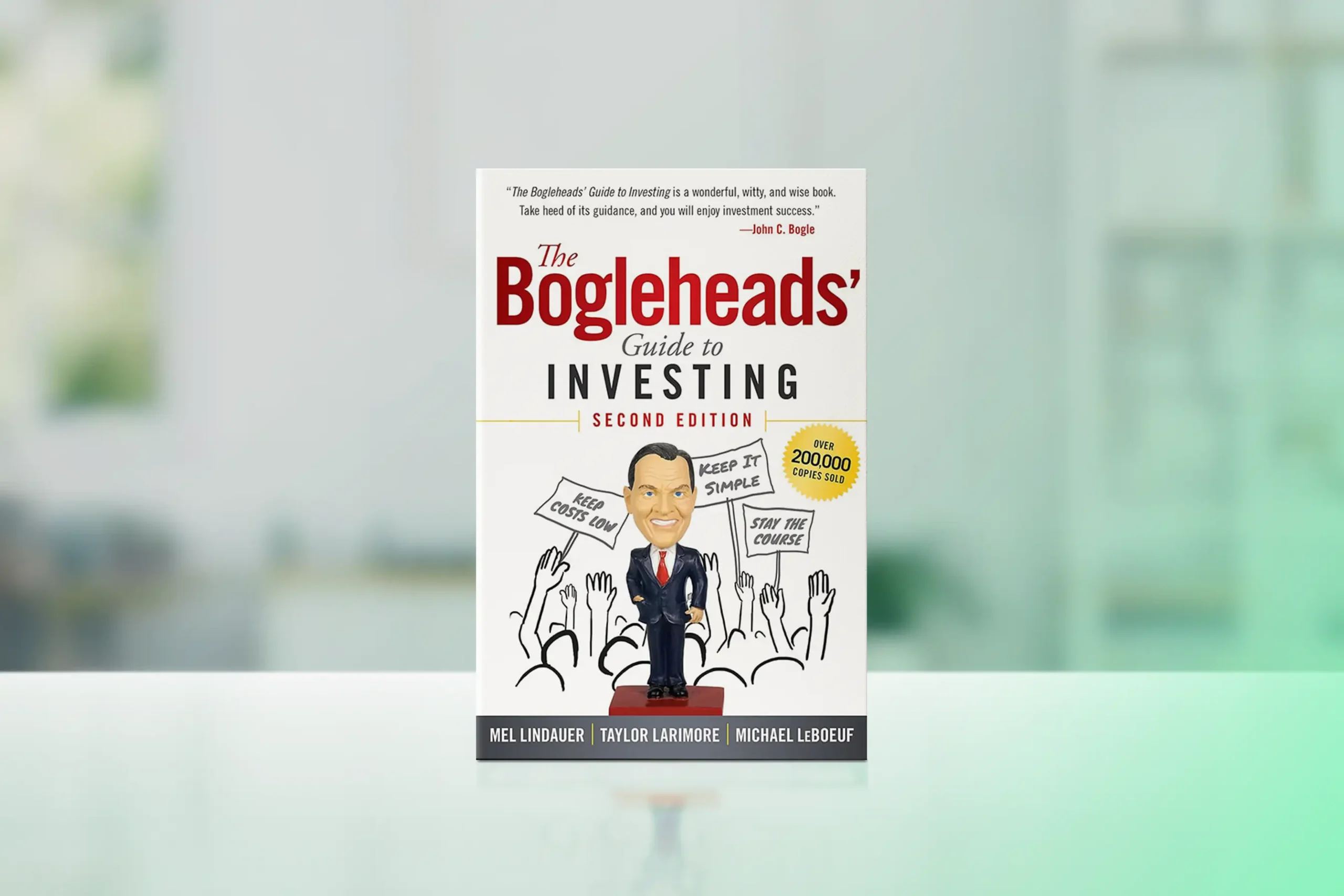Smart spending isn’t about cutting everything—it’s about making intentional choices that maximize value and support your long-term goals. Whether you’re reducing costs, saving more, or gaining control over everyday expenses, understanding your spending patterns provides clarity, confidence, and direction. This awareness becomes the foundation of financial success and empowers you to make decisions that truly align with your priorities.
Inside this article:
TL;DR
Smart spending means making intentional choices aligned with your values, not restriction. Track spending for clarity and insight. Focus on three big expenses—housing, food, transportation—where real savings hide. Use psychology and automation, not willpower. Follow the 30-60-90 plan to build lasting habits. Every step builds freedom and purpose.

Track Your Spending
You can’t optimize what you can’t see. People who track spending save more annually than those who don’t. Yet only 1/3 adults feel confident managing their expenses. The gap isn’t income—it’s visibility.
The Power of Tracking
Tracking reveals your real spending patterns. When you see the numbers, you naturally spend more intentionally. Research shows that simply documenting spending reduces unnecessary expenses by 15-20% before any other changes occur—the awareness itself drives behavior change.
According to Deloitte Consumer Signals, only 46% have money left over at the end of the month—showing the importance of tracking your daily expenses to avoid overspending and improve your monthly financial outcomes.
Choose your method based on what you’ll actually use:
- Digital budgeting and spending apps offer automation and real-time alerts. Best for people who prefer hands-off tracking, though requires trusting technology with financial data.
- Spreadsheets give you control and a clearer picture of patterns. Requires manual entry but offers deeper visibility into where money actually goes.
- Bank statement analysis works if you’re willing to review monthly. Low-tech option that requires discipline but minimal setup.
- Hybrid approach combines automation with manual weekly reviews. Offers best of both: technology handles routine tracking while you spot patterns manually.
Categorize to Clarify
Split spending into two categories: essential (housing, groceries, transportation) and lifestyle (entertainment, dining, subscriptions). This shows where the real savings opportunities are. Go deeper by tracking where impulse purchases cluster—most people have 2-3 categories representing 60% of discretionary spending.
Money Saving Tips
- Choose one tracking method and stick with it for 30 days minimum.
- Use free budgeting apps or a simple spreadsheet.
- Set weekly review times—15 minutes on the same day each week.
- Share tracking with a friend for accountability.
- Export data monthly to spot seasonal patterns and unusual spikes.
For a comprehensive guide to tracking and creating systems, explore Budgeting Made Easy: How to Create and Stick to a Budget, which breaks down the mechanics of financial visibility and control.
Related reading: Budgeting Made Easy: How to Create and Stick to a Budget • Financial Goal Tracking: Tools and Techniques for Measuring Your Progress • The Psychology of Money by Morgan Housel
Key Takeaway: Pick one tracking method this week and stick with it for 30 days. The data will show you exactly where to cut.

Cut Essential Expenses
Essential expenses are where the real savings hide. A 10% reduction in housing costs saves hundreds or thousands annually. These recurring expenses are your biggest lever.
Housing and Utilities: Your Biggest Opportunity
Housing typically eats 25-35% of income. Most people never renegotiate. Here’s what saves the most:
| Strategy | Potential Impact | Effort Level |
|---|---|---|
| Renegotiate rent/mortgage | 3-15% savings | Medium |
| Refinance mortgage | $100-300/month | Medium |
| Audit utility usage | 10-20% savings | Low |
| Switch providers | $50-150/month | Low |
Start with utilities—compare providers, audit usage patterns, and implement low-cost efficiency upgrades. Then tackle housing. If you rent, you have more negotiating power than you realize.
Most landlords prefer keeping reliable tenants over the cost of turnover. If you own, refinancing when rates drop 0.75% or more is one of the highest-leverage moves available.
Money Saving Tips
- Call current providers and mention switching—loyalty discounts are common.
- Shop insurance rates annually; they vary 20-40% between providers.
- For refinancing, compare when rates drop 0.75% or more.
- Switch utility providers or adjust thermostats and lighting.
- Request a home energy audit (often free through your utility).
- Document your rent history and improvements to support negotiation conversations.
To develop the confidence and assertiveness needed for negotiation conversations, check out How to Negotiate and Win in Business, which teaches proven negotiation frameworks you can apply to financial discussions.
Related reading: How to Negotiate and Win in Business • How to Set and Achieve Financial Goals That Align with Your Life Purpose • I Will Teach You to Be Rich by Ramit Sethi
Key Takeaway: Essential expenses are your biggest lever. Spend time here first. A single renegotiation can offset months of coupon clipping and subscription cancellations.

Save on Food
Food is your most controllable expense. The average household spends $300-400 monthly on groceries. Intentional shoppers spend 30-40% less for the same quality.
Strategic Planning Beats Impulse Every Time
Meal planning stops expensive takeout ($15 meal vs $2 at home). Over a year, that’s thousands in savings. The key is planning around what you’ll actually eat—not aspirational meals you’ll skip.
- Plan meals around sales and seasonal produce
- Build a price book—track regular costs at different stores
- Use shopping lists religiously (research shows it reduces spending 15-25%)
- Shop with a full stomach (hunger increases impulse purchases by 23%)
- Compare unit prices, not headline prices (bulk isn’t always cheaper)
The Store Brand Advantage
Store brands often use the same manufacturers as name brands. You pay 20-40% less for identical products. This alone saves $100-200 monthly. Beyond grocery basics, store brands on staples (flour, oil, dairy) outperform name brands consistently while reducing decision fatigue.
Money Saving Tips
- Buy store brands—often made by the same manufacturers as name brands.
- Meal plan and shop with a list to avoid impulse purchases.
- Batch cook on weekends to prevent expensive takeout decisions.
- Use grocery store apps for exclusive digital coupons ($20-50/trip).
- Buy protein on sale and freeze it; use cashback apps like Ibotta.
- Track which stores have lowest regular prices for your staple items.
Learn how to align spending with your deeper values in Mindful Spending: Aligning Your Money with Your Values, which explores how to make food and nutrition choices that support both your budget and wellbeing.
Related reading: Mindful Spending: Aligning Your Money with Your Values • The Connection Between Nutrition and Mental Health • The Subtle Art of Not Giving a F*ck by Mark Manson
Key Takeaway: Meal planning plus store brands cut food budgets 30-40% without sacrifice.

Reduce Transportation Costs
Transportation is your second-largest expense—and it’s negotiable. Costs range from $200-800+ monthly. Remote work and hybrid arrangements change everything.
The Remote Work Advantage
Remote work saves serious money. If you only commute a couple days a week, you might not need a car costing $550+ monthly. Most people miss this advantage. Even one remote day weekly saves $200+ annually. Three days remote saves enough annually to fund a vacation or accelerate debt payoff.
Lease vs. Buy: The Real Numbers
The choice between leasing and buying isn’t obvious. Here’s the comparison:
| Factor | Leasing | Buying |
|---|---|---|
| Monthly Payment | $250-400 | $300-600+ |
| Insurance | $100-150 | $150-300 |
| Maintenance | Covered | $50-150 |
| Mileage Limits | Restricted (overage fees) | Unlimited |
| Total Monthly Cost | $350-550 | $500-1,050 |
| Best For | Low mileage, predictable usage | High mileage, keeping 7+ years |
What are your City Transport Options?
If you live in a city, you have options beyond a car. By switching to transit or e-bikes, you can cut costs by $100-200/month while gaining time to work or read instead of sitting in traffic.
| Method | Monthly Cost | Commute Time | Traffic Impact | Best For |
|---|---|---|---|---|
| Car | $400-800+ | 20-45 min | High (stuck in traffic) | Flexibility, suburbs |
| Public Transit | $50-150 | 15-40 min | None (dedicated lanes) | Cities with good transit |
| Electric Scooter or Bicycle (Purchase) | $30-50 (maintenance/month) | 8-25 min | None (dedicated lanes/paths) | Nice weather, shorter distances |
| Motorbike/Scooter | $150-300 | 12-25 min | Very low (weaves traffic) | Predictable commutes |
Note: Costs and times vary by city. Transit and e-bikes eliminate traffic stress.
Money Saving Tips
- Request hybrid/remote work (saves $2,400-7,200 annually).
- Negotiate employer transit subsidies (many offer $100-300/month pre-tax).
- Switch to public transit or e-bike for commuting; invest savings.
- Buy used vehicles (2-3 years old) to avoid depreciation hit.
- Shop auto insurance annually; rates vary 20-40% between providers.
For strategies on negotiating hybrid or remote work arrangements, explore Work-Life Balance: Balancing Ambition with Personal Wellbeing, which covers how to have conversations with employers about flexible arrangements that benefit both parties.
Related reading: Work-Life Balance: Balancing Ambition with Personal Wellbeing • The Benefits of Outdoor Activities for Physical and Mental Health • The 80/20 Principle by Richard Koch
Key Takeaway: Transportation is your biggest negotiable expense. Request remote/hybrid work, then explore transit, e-bikes, or combinations that save thousands annually.

Master Spending Psychology
Smart spending is about psychology, not tactics. Behavioral forces influence every financial decision. Understanding these patterns separates consistent savers from those who struggle.
Automation: The Ultimate Spending Control
Automate transfers to savings the day after payday. You won’t miss what you don’t see. This increases savings rates 15-30% without willpower. The key is setting this up once and forgetting it—compound behavior beats willpower every time.
The “Good Enough” Principle
Focus on the 20% of expenses driving 80% of spending (housing, food, transportation). Nail these three and don’t obsess over lattes. This isn’t permission to waste on small things—it’s prioritization. High-leverage changes compound faster than nickeling-and-diming yourself.
Behavioral Anchoring: Make Small Wins Visible
When you save $50/month on insurance, that’s $600 annually. Celebrate these wins. They build momentum and reinforce your identity as someone who makes intentional financial choices. Document your wins—a simple spreadsheet of monthly savings creates visible progress.
Money Saving Tips
- Automate transfers to savings the day after payday—out of sight, out of mind.
- Focus on the 20% of expenses driving 80% of spending (housing, food, transportation).
- Log wins in a tracker to see your progress and stay motivated.
- Create accountability with a friend; weekly check-ins increase follow-through.
- Celebrate small wins to reinforce the identity shift toward intentional spending.
To deepen your understanding of behavioral change and habit formation, read The Power of Habit: How to Build and Break Habits for Growth, which explores the neuroscience of behavior change and how to create lasting shifts in your financial decisions.
Related reading: The Power of Habit: How to Build and Break Habits for Growth • Mastering Habits: Building Healthy Habits That Stick for Life • The Behavior Gap by Carl Richards
Key Takeaway: Psychology beats willpower. Automate savings, focus on high-leverage changes, and celebrate small wins.
The 30-60-90 Plan
Transform spending habits systematically over 90 days:
Days 1-30: Build Visibility
- Track every expense. This foundation reveals where your money actually goes.
- Analyze patterns—what surprises you? Most discover 2-3 unexpected spending categories.
- List quick wins (cancellations, switches). Start with low-effort, immediate savings opportunities.
Days 31-60: Implement Changes
- Renegotiate major expenses. Call providers; many offer loyalty discounts immediately.
- Automate savings and bills. Set transfers the day after payday.
- Start meal planning. Reduce takeout temptation through intentional preparation.
Days 61-90: Build Habits
- Weekly 15-minute spending reviews. Consistency beats intensity for lasting behavior change.
- Refine what works; drop what doesn’t. Keep only strategies that fit your life.
- Create 12-month strategy. Build on momentum; plan your next quarter.
Your Path Forward
Start each day confident your money supports your goals. Smart spending isn’t restriction—it’s intentional choices that reflect your values. Begin by tracking your spending this week, not for judgment but for clarity. When you see where your money goes, improvements become easier. Pick one action from the 30-60-90 framework and build momentum.
Next Steps
- This week: Pick one tracking method and commit to 30 days of visibility.
- Next week: Identify your top three expenses and explore one improvement for each.
- Week 3: Make your first high-impact change.
- Ongoing: Review weekly and celebrate progress.
Every small step forward builds a future you can be proud of. You’re not just managing money—you’re shaping a life of freedom and purpose.
Frequently Asked Questions
What’s the difference between a budget and a spending plan?
A budget sets limits for categories, while a spending plan focuses on intentionally directing money toward priorities. Both help you stay aware of your finances, but a spending plan is often more flexible and goal-oriented.
How do I stay consistent with smart spending habits?
Consistency comes from small, repeatable actions: tracking expenses weekly, reviewing financial goals monthly, and automating savings or bill payments to reduce decision fatigue.
How can I avoid impulse purchases?
Try the 24-hour rule, make a shopping list before buying, and unfollow marketing emails or apps that encourage spontaneous spending. Creating friction helps prevent emotional purchases.
Do I need financial apps to manage my spending?
No—apps are helpful, but simple methods like spreadsheets or handwritten logs work just as well. The key is choosing a system you’ll actually stick to.
How do I know if I’m overspending?
Warning signs include relying on credit cards to cover basics, having little savings, feeling anxious about money, or consistently exceeding your monthly budget. Tracking your expenses for 30 days can give a clear picture.
Important Disclaimer:
This content is provided for educational and informational purposes only and should not be considered financial, legal, or tax advice. It is intended to help build general financial knowledge and a framework for thinking about personal finance topics such as budgeting, saving, emergency funds, goal-setting, investing, and working toward financial independence or financial freedom.
Everyone’s financial situation, goals, income, expenses, risk tolerance, and time horizon are unique, and the information presented may not be appropriate for your specific circumstances. Before making financial decisions, consider consulting a qualified professional for personalized guidance.
Examples and scenarios are for illustrative purposes only and may be based on assumptions or historical information. Actual outcomes will vary, and no financial strategy is guaranteed to be successful. Past performance does not guarantee future results. Market conditions, economic factors, and individual circumstances can significantly impact investment outcomes. What works for one person may not work for another.
This content should serve as a starting point for financial education, not a substitute for professional advice.
Helpful Resources:
-
NAPFA: Connects consumers with fee-only fiduciary financial advisors who must put client interests first
-
CFP Board: Directory of Certified Financial Planner professionals with strict ethics and education standards
-
Investor.gov: Education initiative from the SEC and FINRA offering free resources on investments
-
JumpStart: Nonprofit dedicated to financial education with curated resources and tools
-
Money Helper: Government-backed financial guidance and planning tools
Related articles
Budgeting Made Easy: How to Create and Stick to a Budget
Master budgeting fundamentals with practical frameworks for organized spending.
Mindful Spending: Aligning Your Money with Your Values
Spend consciously by connecting financial decisions to your core values.
Financial Goal Tracking: Tools and Techniques for Measuring Your Progress
Learn proven methods for tracking financial goals and maintaining accountability.
How to Set and Achieve Financial Goals That Align with Your Life Purpose
Connect spending habits to your larger mission and meaningful goals.
The Power of Habit: How to Build and Break Habits for Growth
Understand habit formation and create lasting financial behaviors.
Further reading
I Will Teach You to Be Rich by Ramit Sethi
A guide to personal finance emphasizing smart spending, automation, and intentional wealth-building.
The Psychology of Money by Morgan Housel
Explores behavioral factors that influence financial decisions and wealth.
The Behavior Gap by Carl Richards
Explores the gap between financial knowledge and action with practical solutions.
The 80/20 Principle by Richard Koch
Identify and optimize the 20% of spending patterns that drive 80% of results.
Mastery by Robert Greene
Principles of intentional practice and deliberate improvement applied to financial mastery.





